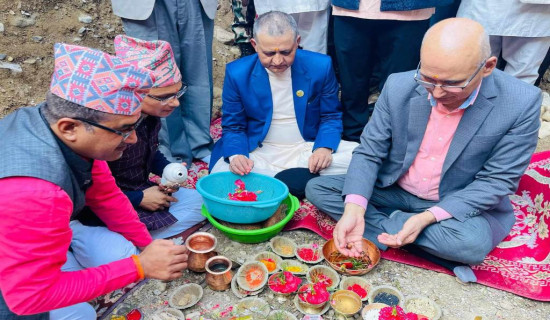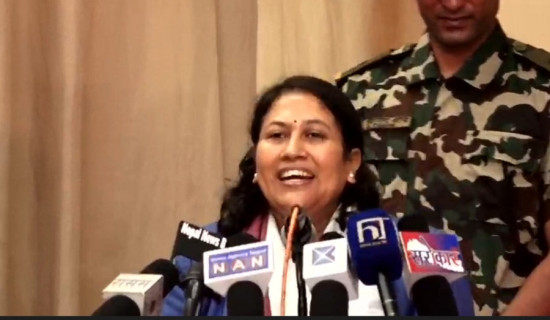- Sunday, 1 September 2024
Second Memoirs Of A Seasoned Administrator
Autobiographies and memoirs have started to attain frequency among Nepali writers. However, there are few instances when people write memoirs more than once. Civil servants are possible exceptions to this convention, as they probably feel that they have more to share after coming out with the first publication, along with a bureaucrat's sense of discretion and reservation.
Sir Walter Crocker, the first Australian Ambassador to Nepal, though a diplomat enjoying all privileges and immunities, was unknowingly held a virtual captive inside the precincts of the Singha Durbar Secretariat for several hours on the fateful day of December 15, 1960. He thought it prudent to have two memoirs. However, it seems editors, in their efforts to prune the lengths, probably thought it not worthwhile to include Nepali experience in the books.
The prolific Australian diplomat completed his centenary before his death in 2002. The same is the case with at least two top Indian diplomats, K.P.S. Menon and T.N. Kaul, who have penned more than one memoir to share their long careers in bureaucracy, including their experience in Nepal.
In the second memoir of Damaru Ballabh Bhattarai (D.B.), Secretary and Election Commissioner, the author spent the early part of his civil service as Chief District Officer for 12 years, covering seven districts ranging from the Himalayan hills to Terai and even Kathmandu. D.B. also holds the unique experience of serving as Secretary to as many as six Prime Ministers, which is not that surprising in a country where political transition is a rule rather than an exception, irrespective of any form of government, monarchical, parliamentary, constitutional, or republican. But the element of surprise is his retention in the Prime Minister's Office, as there is a feeling of being left out or kicked out in this posting for our civil servants.
The new book entitled ALMALIYEKAA GORETAAHARU: ANUTTARIT PRASANGAHARU, which can roughly be translated as Confused Pathways: Unanswered Contexts, is quite reflective of the saying that autobiography is a wound where the blood of history does not dry. Three senior administrators, Khem Raj Nepal, Hem Raj Paudel, and Jayamukunda Khanal, have commented on the content and context of the book.
D.B., in his characteristically simple and clearly flowing language, has succinctly shared the experience of his life in 32 chapters on what he calls the thought process, internal conflict, and tension. He portrays negative trends prevalent in the Nepali administrative milieu, as there is a tendency to brand people with various accusations, including those of political colour.
The first chapter is basically a prologue with the writer's list of people who inspired, helped, and assisted him in his long bureaucratic journey, including people who egged him to write the second memoir. His first book, ANUBHAV RA CHINTAN (Experiences and Reflections), was published more than two years ago. The author also names two recent publications penned by former Prime Minister Surya Bahadur Thapa and top cardiologist Dr. Bhagwan Koirala as having inspired him.
While making a free and frank assessment of people he encountered during his long stint in administration, D.B. has thought it appropriate to appreciate the roles of some administrators. Those falling under his positive evaluation include Balaram Singh Malla, Mohan Dev Pant, Padam Prasad Pokhrel, Hiranya Lal Regmi, Vidya Nath Nepal, Mangal Krishna Shrestha, Ram Chandra Malhotra, Shankar Raj Pathak, Dr. Suresh Raj Sharma, Ranjan Singh Shah, and Arjun Mani Dixit.
This work can also be taken as a study of Nepal's administrative culture. It truly unravels anomalies of Nepali bureaucracy that can be described as an exercise in administrative mess where rules and regulations are more breached than observed and policy-level corruption reigns supreme. The author portrays a sharp depletion in the standards of constitutional organs that have badly been politicised over the years. The writer has poor impressions of political class and defines political changes as attempts as if to rob the country of its originality and perpetuate the influence of corrupt elements trying to deny the rule of law for their vested interests.
Chapters three and four are important in the sense that the writer has the best appreciation for King Birendra, who not only encouraged him to fulfil his duty as Chief District Officer of Kathmandu but also showed sympathy for his summary dismissal from the service. There is, however, a context in which one senior official was quite familiar with the author prior to his induction into palace service, having metamorphosed into an unwieldy and bullying personality.
Incidentally, chapter three detailing his experience as CDO of Kathmandu, entitled Chaarkhaalmaa Haraundaa (disappearing in the whirlpool of Chaarkhaal), is also reproduced as article 7 in Raastrasevak magazine (Vol. 26. No. 1, September 2022), published by the Council of Former Public Servants of Nepal. D.B. makes particular reference to the observation of Chief Justice Ratna Bahadur Bista that the judiciary was not favourably inclined to accept the system of Thaado Aadesh (direct order without recourse to courts as practiced by administrators) during a workshop of chief district officers.
The author points fingers at the actions and possible intentions of Prime Minister Girija Prasad Koirala. He blames Koirala for injecting politicisation into the bureaucracy. He has also given context to Koirala's indirect confessions of what he calls sanctions given by the Indian Foreign Secretary to hijack Nepali Airlines with the intention of robbing three million rupees of Nepal's central bank after his overtures to get money from an Indian intelligence outfit failed. Incidentally, Kewal Singh was India's Foreign Secretary at the time and has not mentioned this aspect in his memoirs.
While the book is quite interesting, there are some negative points. The first lacuna is that presentations are not systematic but random. Second, there are mistakes in names and descriptions. As Shankar Raj Pathak is a professor and Zonal Commissioner, apart from several other functions he discharged, he is not a doctor. Likewise, Chandra Shekhar, who later became Prime Minister of India and visited Nepal to take part in the meetings of the then political formations, was a senior politician but never an academic.
Despite such minor shortcomings, D.B.'s second memoir is an admirable work depicting a true picture of the Nepali bureaucracy that was already on a downward slide and probably fell to the bottom after the perfunctory and arbitrary decision of Girija Prasad Koirala to dismiss a large number of civil servants. I congratulate the author on his tenacious efforts to bring out the second book.
(Dr. Bhattarai is a former foreign secretary, ambassador, and author.)











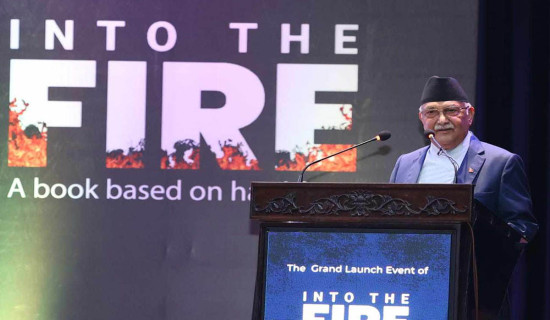
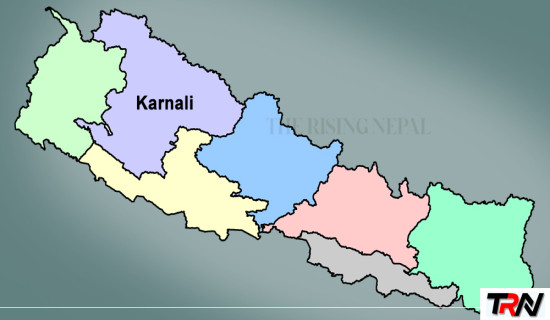
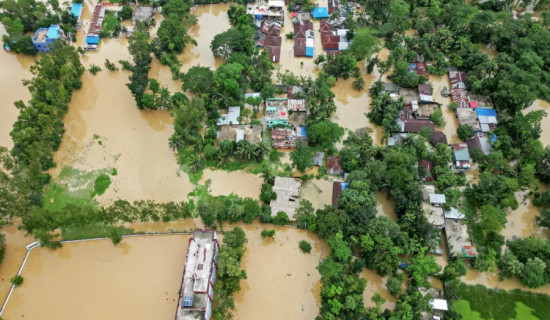
-(1)-original-thumb.jpg)
